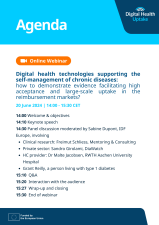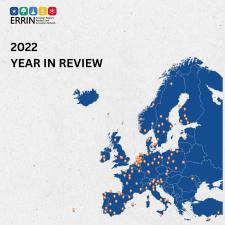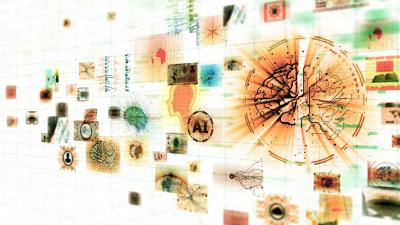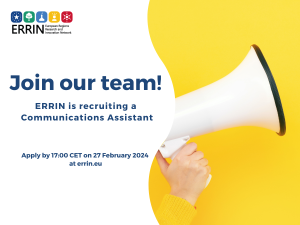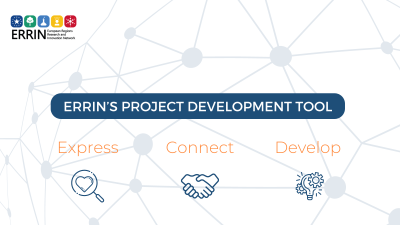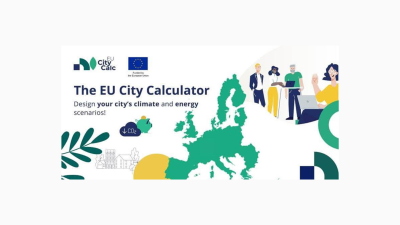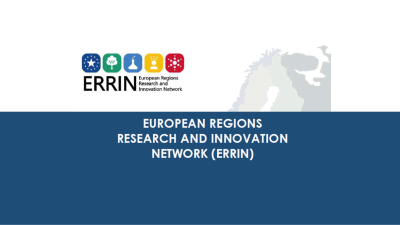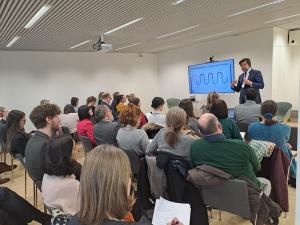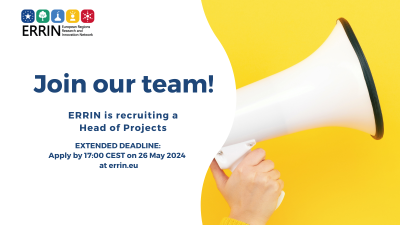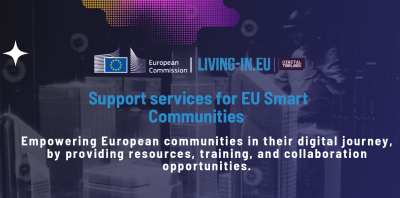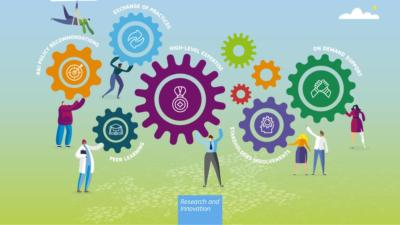Working Group Leaders
Representatives of Brussels-based offices leading the work of ICT Working Group.
ICT
The main objective of the ICT Work Group is to act as a platform to discuss and share information on ICTrelated initiatives and funding opportunities in relation to the European Commission’s policy priority “A Europe fit for the digital age”. Especially highlighting the regional dimension of the ICT-field, the WG aims to create opportunities for interregional cooperation in the field of ICT by linking with other areas and sectors such as smart cities, energy, transport, health or culture.
ERRIN Contact
Previous Related ERRIN Working Group Meetings

Artificial Intelligence related strategies at local and regional level – ICT WG Meeting
In December 2023, the Council and the European Parliament reached a political agreement on the AI Act, setting out rules for the development and usage of AI in Europe. With AI's growing importance
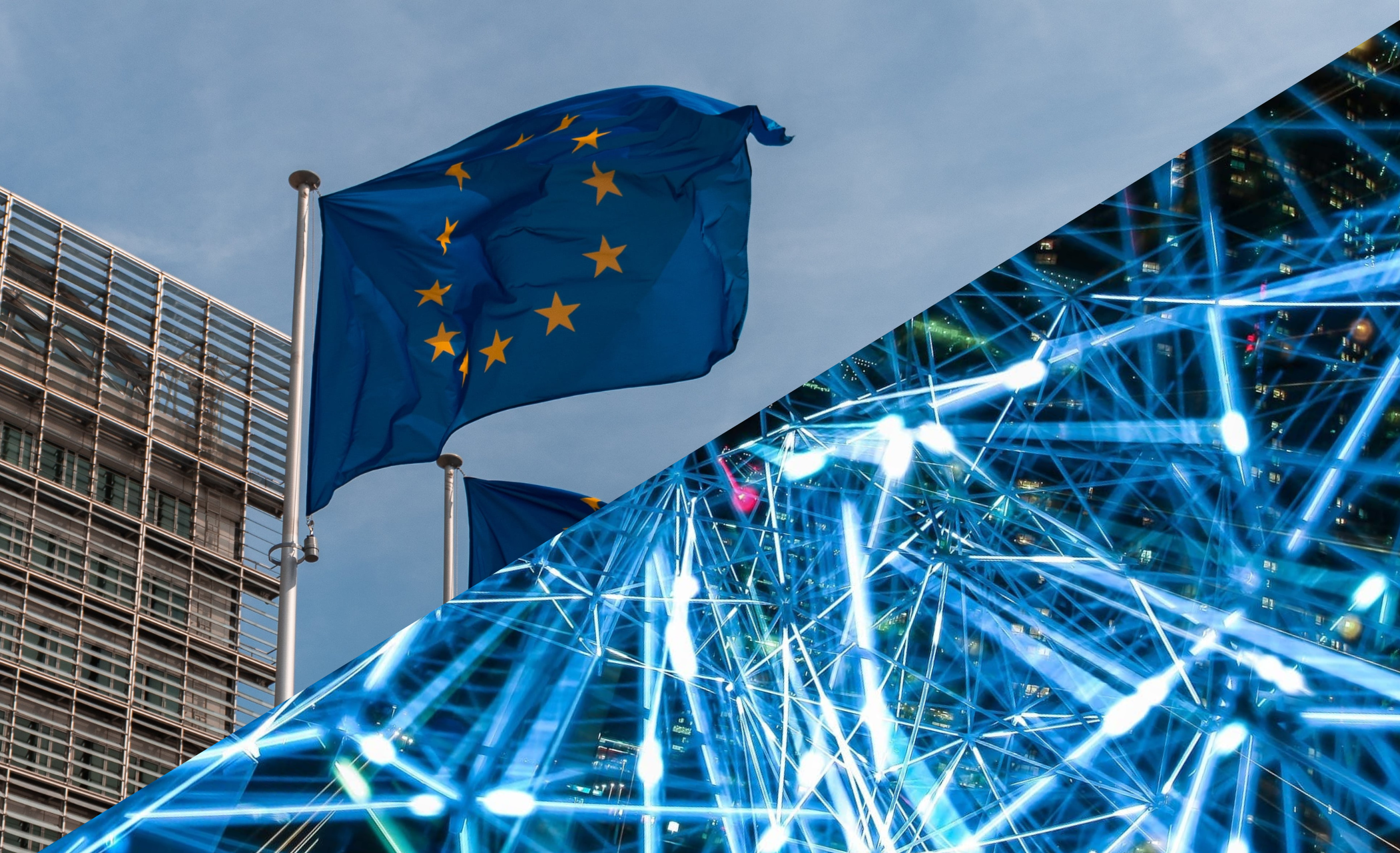
Policy & Smart Specialisation WGs meeting: Widening in FP10 and impact on cohesion policy post-2027
The topic of widening gathers high attention in the discussions around the next European Framework Programme for R&I, raising questions with the potential to influence not only the Widening sub-

The role of DIH in supporting public authorities’ digital transformation – ICT Working Group meeting
The European Digital Innovation Hubs (EDIHs) initiative is part of the Digital Europe Programme. EDIHs function as one-stop shops for the public and private sectors alike, enabling them to respond to
WG Related Events
EUREKA 2024: Fair of culture and creativity - Friuli Venezia Giulia
Eureka 2024 is designed for the enterprises that want to boost their competitiveness and for all the culture and innovation enthusiasts. Take your unique opportunity to meet the cultural and creative industry leaders and engage in two days of exposition, B2B meetings, workshops and conferences. The event will take place in Pordenone, on 29-30 October.
Workshop on regional policies to promote the adoption of innovation by public administrations
The EU project Prepare brings together four regions that are interacting with the local ecosystems to design novel policies that promote demand-driven co-creation for the benefit of local public services, SMEs and citizens. The aim is to help unlock the potential of innovation procurement to turn regional needs into opportunities. A workshop with thematic insights, resources and best practices will take place on 27 June from 9:00-12:30 in Brussels.
From Vision to Action: Co-Creating Rural Futures
The development and connectivity of rural areas, along with their interaction with urban regions, is a critical concern for Thuringia and many European regions. This event aims to initiate a co-design process in collaboration with like-minded European regions. You are invited to share your experiences, discuss, and contribute to the thematic topics of the World Café sessions: (1) Buildings as a Resource, (2) Mobility and Digitalisation, and (3) Community and Society. Your active participation and input, or that of your region, would be invaluable to this collaborative effort. This event will…
EuroINNOWorkshop&Aperitif - "Veneto Data Platform"
VENETO DATA PLATFORM - Collection, analysis, and use of data for managing cities and territories to provide better services to citizens. The event will take place in Brussels on 24 June, 16:30-19:00.
ERRIN Spring AGM 2024
ERRIN’s 2024 Spring Annual General Meeting (AGM) will be held on 20 June from 15:00 to 17:15 CEST, followed by networking drinks until 19:00. This year, the event will be held in person at Scotland House (Scotland Europa, Rdpt Robert Schuman 6, 1040 Bruxelles).
Digital health technologies supporting the self-management of chronic diseases: how to demonstrate evidence facilitating high acceptance and large-scale uptake in the reimbursement markets?
The large-scale uptake of Digital health technologies (DHT) including digital health applications will make significant contribution to a sustainable design of European health systems in the future. This webinar will focus on data collection and clinical trial design for chronic disease self-management. The event will take place online on 20 June, 14:00-15:30.
Pagination
WG Documents
ERRIN Year in review 2022
The ERRIN Year in review 2022 is out! Read the report to see the numerous activities ERRIN and its members have been involved in throughout the year.
European Digital Innovation Hubs in Digital Europe Programme
The draft working document for European Digital Hubs in the Digital Europe Programme.
WG Related Content
Empowering Cultural Heritage with AI: A Strategic European Agenda
A comprehensive report that sets forth an ambitious strategy to leverage Artificial Intelligence in enhancing Europe’s cultural heritage sector has been published. The report details AI’s capacity to improve preservation, accessibility, and interaction with cultural assets. It calls for sector-wide collaboration, innovation, and investment to overcome challenges and fully harness AI’s transformative potential for heritage conservation and engagement.
ERRIN is looking for a Communications Assistant (traineeship)
ERRIN is looking for a Communications Assistant! This role is a perfect opportunity to gain first-hand experience in Research and Innovation and participate in the daily work of the organisation. The deadline to apply is 27 February.
Introducing ERRIN’s Project Development Tool: a gateway to your next project
ERRIN is excited to announce the launch of its new Project Development Tool, a significant game-changer in how ERRIN members and their stakeholders engage in project development activities. We encourage all members to log in, explore this tool and leverage it for their project development needs.
EU City Calculator: a learning programme to support public authorities in reaching climate neutrality
From 26 February 2024, all European cities will have the opportunity to enroll in the EUCityCalc project's learning programme to learn how to collect data and use the EU City Calculator tool, which is an open source online platform that allows local councils and other stakeholders to visualise and simulate low-carbon scenarios for their towns and cities, as well as to assess the trade-offs related to available choices.
ERRIN’s agenda for 2024 unveiled
Every year ERRIN defines workstreams to guide its work throughout the year, closely linking to its core missions and priorities, as well as the key initiatives in the EU R&I agenda. Discover what has been planned for 2024 in ERRIN Working Groups and Task Forces.
Direction FP10 – rolling out ERRIN's activities in 2024
With the Commission proposal on the next EU Framework Programme for R&I (FP10) expected in mid-2025, this year will be key for setting the tone for further work on the topic and actively engaging in discussion. Have a look at an overview of ERRIN activities currently in the pipeline and opportunities to engage.
Pagination
Latest Updates
- By Rodolphe Doité
ICT WG: Call for examples on Artificial Intelligence strategies at local and regional levels
The ICT Working Group is looking for examples from local and regional authorities that have adopted or are in the process of adopting a strategy on Artificial Intelligence. The examples would be presented in an upcoming meeting on “AI-related strategies at regional and local level ”, which will take place on Wednesday 12 June 2024 (14:00 to 16:00 CEST).
- By Anonymous
H-ARPA project proposes a healthcare model that integrates technological solutions to improve access, continuity of care, early detection of complications, and the quality of care for people with chronic diseases in rural settings
Rural areas face significant healthcare challenges. An aging population, a shortage of professionals, and geographic dispersion make it difficult to provide adequate care for chronic diseases. This leads to health inequalities between rural and urban populations and negatively impacts socioeconomic development. The H-ARPA project proposes a healthcare model that integrates technological solutions to improve access, continuity of care, early detection of complications, and the quality of care for people with chronic diseases in rural settings. The project will be supported by local healthcare stakeholders such as rural pharmacies and local entities.
- By Teresa Vio
ERRIN is looking for a Head of projects - Extended Deadline
In view of the upcoming departure of ERRIN's current Director of projects, Ryan Titley, ERRIN is looking for a replacement to start in September 2024. The new colleague will work closely with the ERRIN Director on strategic planning, and lead the implementation and development of ERRIN's current and future project portfolio. Extended deadline: Applications are open until 26 May at 17.00 CEST.
- By Rodolphe Doité
Submit your Expression of Interest for the Online Procurement Helpdesk for Smart Communities
Through the Digital Europe Programme, the Support services for EU Smart Communities will provide support to help cities/communities develop their digitalisation strategy and roadmap, including an identification of the required digital tools and provide access to digital expertise available in the EU.
- By Gaia Ialisa Marotta
Empowering Innovation: Overview of Public Engagement in Research & Innovation
DG RTD has recently released a thematic report titled "Overview of Public Engagement in Research & Innovation", which provides an introductory overview of Public Engagement in Research and Innovation in Europe. The document aims to inspire and help public actors and policymakers to promote and support public engagement.
- By Filippo Saguatti
AI for the Managing Authorities of policy intruments
The enormous set of data collected in the programming and management phases by MAs of Cohesion Policy and other policy instruments can be analysed and processed with the support of the new AI technologies to simplify beneficiaries’ access to funding opportunities, monitoring of projects and programme activities and results, orientation of public policies through predictive technologies.
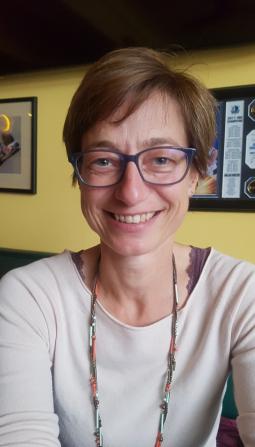


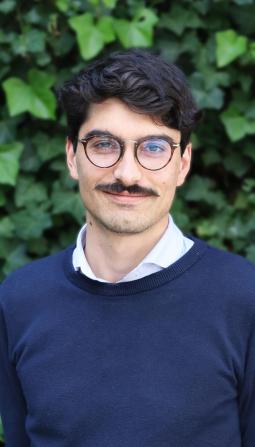
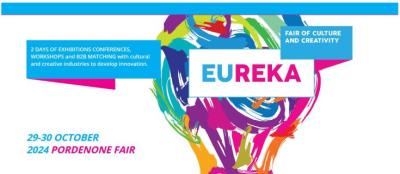
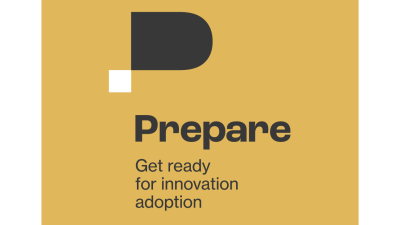
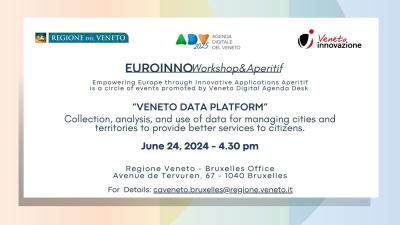
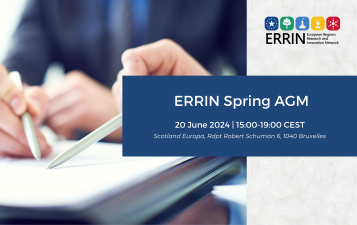
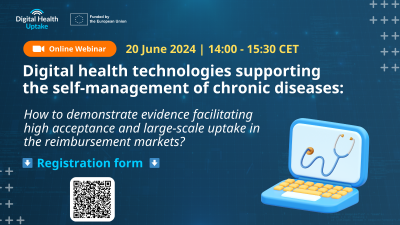 ,
, 